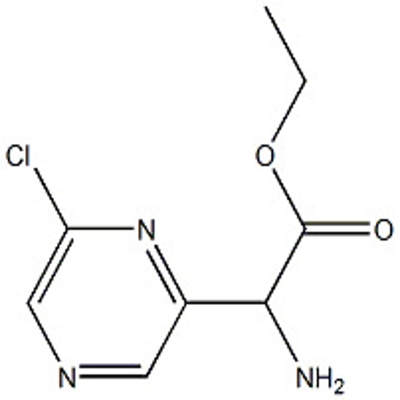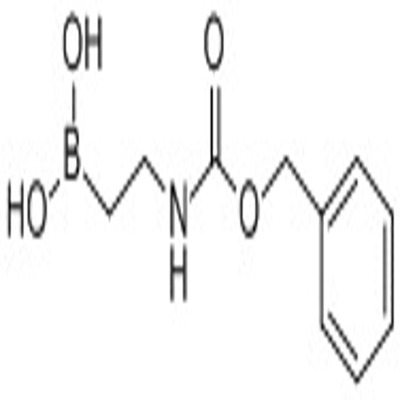Nature journal magic metal film delivers car-t cells to solid tumors
-
Last Update: 2019-12-16
-
Source: Internet
-
Author: User
Search more information of high quality chemicals, good prices and reliable suppliers, visit
www.echemi.com
Wen Wei Wei Wei Since two car-t therapies were approved for blood tumor in 2017, car-t therapy is still helpless for solid tumor treatment This is mainly because solid tumors (including breast cancer, ovarian cancer and pancreatic cancer) have many strategies to avoid and fight against cancer cells killing immune cells Car-t cells injected intravenously can neither enter the tumor nor survive in the adverse microenvironment of tumor focus formation So, what if car-t cells are allowed to "parachute" directly around the tumor? On December 9, scientists from Fred Hutchinson Cancer Research Center were in nature biological engineering The research results published in the journal for the first time show that in the preclinical model of ovarian cancer mice, a piece of metal film loaded with anti-cancer immune cells can not only increase the density of car-t cells in tumor tissue by 232 times compared with the traditional intravenous injection, but also completely eliminate 70% of mouse tumors [1] Dr Matthias T Stephan, who led the study, said: "antineoplastic cell therapy has been a great success in treating blood cancer, but not in solid tumors Our findings are an important step forward for cell therapy to effectively fight solid tumors In addition to minimizing side effects, our ultimate goal is to make T-cell therapy faster, cheaper, and easier for patients to treat " To achieve this goal, Stephan's team studied the method of "airborne" car-t cells In fact, this research has been attempted by other research groups, for example, CAR-T cells are implanted into scaffolds made of hydrogels, fibrin matrix, extracellular matrix components or electrospinning polymers, and then implanted directly around the tumor However, these methods are not successful [2 - 5] Stephan's team chose a metal film made of nitinol, which is used to repair fractures, correct teeth and prevent artery obstruction This nearly translucent metal film, made by monarch Biosciences, can be safely implanted into human body, with a thickness of 10 microns, about seven times thinner than human hair Under the microscope, the film has very small space and can be designed into different pattern structures Stephan and his colleagues said: "we need to find a membrane pattern structure suitable for T cells The space of this pattern structure needs to be small enough to ensure that the cells will not fall into the gap, but not too small, so that T cells will feel too crowded to move " After screening, they found that a straight-line pattern structure similar to the top-down view of the maze was most suitable for loading T cells The researchers implanted car-t cells in the membrane that were edited to target the ovarian cancer cell marker ror1, and placed them on both sides of the membrane, they would be absorbed into the material "It's like a slice of bread with jam on both sides The metal membrane is the bread We put car-t cells on both sides of the bread, and then they soak into the middle of the bread " Stephan explains Considering that the goal of the experiment is not only to provide anti-tumor T cells, but also to trigger their rapid expansion at the implantation site, the researchers coated the metal film with fibrin and added T cell expansion activators: CD3, CD28 and CD137 "It's not just a passive delivery device, it's a release platform that triggers the expansion of car-t cells to overcome the tumor's defense against immune cells," Stephan said When the weapon was ready, the researchers tested it on a mouse model of unresectable ovarian cancer The Ni Ti film containing car-t cells was implanted into the tumor The film could be easily processed and located on the tumor focus Once positioned, the implants promote the rapid expansion of the embedded anti-cancer lymphocytes, making the density of car-t cells in tumor tissue 232 times higher than that of traditional intravenous T cells In addition, 70% of the treated mice were cleared completely, and the average survival time was 80 days, 2.7 times higher than that of the control group During the experiment, the metal film was safe and reliable, and there was no necrosis in the surrounding tissues or organs On this basis, the researchers also developed a three-dimensional device Self expanding tumor stents are often used as palliative measures to relieve the malignant obstruction of airway, gastrointestinal tract or urethra The researchers hypothesized that the tubular metal film impregnated with car-t cells could release the anti-tumor T cells into the tumor while preventing the obstruction of the lumen, so as to induce the disease to subside This idea was confirmed by a three-dimensional pancreatic tumor in vitro experiment: the use of functional scaffolds loaded with tumor specific car-t cells can indeed prevent the occlusion caused by tumor growth, indicating that this method can be used for cancers that cause airway or digestive system obstruction, such as lung cancer, pancreatic cancer or esophageal cancer Finally, Stephan put forward the prospect: in the current experiment, we focus on car-t cells, but I can foresee that this method works together with T cell receptor therapy, natural killer cells and other immune cells targeting cancer In conclusion, this study confirmed that the combination of biocompatible nickel titanium film and anti-tumor immune cells can effectively eliminate solid tumors that cannot be removed surgically Although further experimental research is needed to transform this technology into clinical application, its application prospect is good and it is worth looking forward to Field: Cancer Journal: nature Biomedical Engineering Highlight: scientists from Fred Hutchinson Cancer Research Center have designed a kind of porous network nickel titanium film with good biocompatibility, which can efficiently load car-t cells and trigger their rapid expansion at the implantation site In the preclinical model of ovarian cancer, this technique can effectively eliminate tumor and prolong the survival time of mice In addition, the tubular metal film developed on this basis is suitable for cancer causing obstruction of respiratory tract or digestive system.
This article is an English version of an article which is originally in the Chinese language on echemi.com and is provided for information purposes only.
This website makes no representation or warranty of any kind, either expressed or implied, as to the accuracy, completeness ownership or reliability of
the article or any translations thereof. If you have any concerns or complaints relating to the article, please send an email, providing a detailed
description of the concern or complaint, to
service@echemi.com. A staff member will contact you within 5 working days. Once verified, infringing content
will be removed immediately.





![[4-methylsulfonyl-2-(trifluoromethyl)phenyl]boronic acid](https://file.echemi.com/fileManage/upload/goodpicture/20210823/m20210823171652704.jpg)

